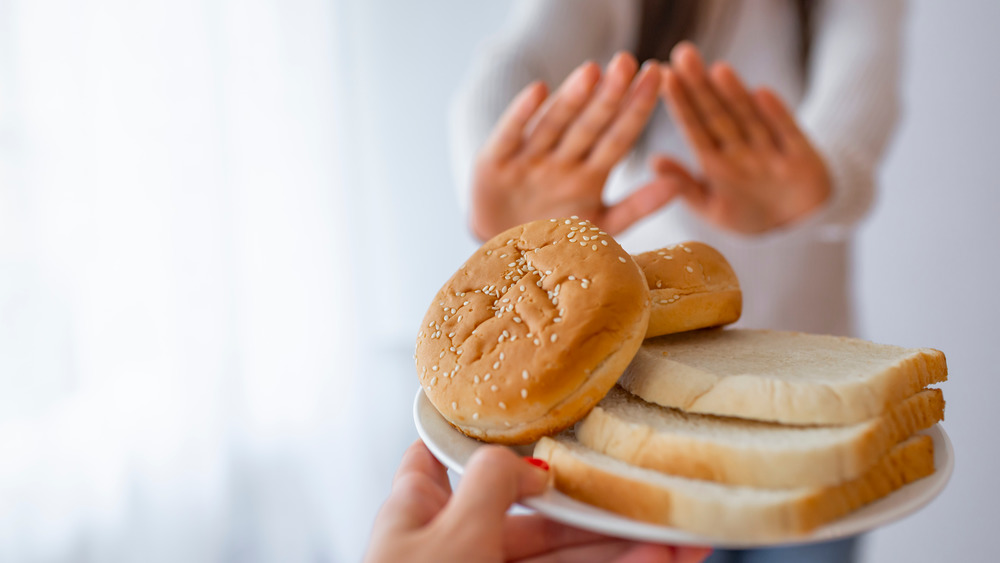Does The Wheat Belly Diet Really Work?
If you're carrying extra inches around your belly that stubbornly refuse to budge, consider taking the toast off your breakfast plate. The wheat-free diet trend became popular in 2011 after the book Wheat Belly, written by cardiologist William Davis, M.D., caught fire and became a national bestseller. Davis was spurred into investigating the impact of wheat consumption on weight gain, after noticing his own hefty 'wheat belly' in a vacation photo. He also noticed that he felt sluggish and tired after eating toast or bagels for breakfast, but had plenty of energy after eating eggs instead.
Davis tested this theory with his own overweight, diabetic patients, asking them to eliminate wheat and other high-glycemic foods from their diets. He found that, after three months, most of them not only lost weight — especially around the belly — but saw blood sugar levels fall to a normal range, too (via WebMD).
Davis is well aware that, for many, the idea of even suggesting that wheat is problematic is crazy, saying, "It may seem absurd, even unpatriotic, to demote an iconic dietary staple to the status of public health hazard" (via Women's Health Magazine). But, as he explains in his book, the varieties of wheat consumed today have been subject to so much hybridization and genetic variation that they are a very different beast from what our great-grandparents ate in the early 1900s.
Could today's wheat be causing weight gain?
The idea caught on and the diet is still popular today, with thousands of life- and health-transforming testimonials posted online. On Amazon alone, the book has nearly 8,000 reviews, the vast majority of them positive.
In spite of its popularity, the idea that wheat is the main culprit responsible for weight gain and obesity in recent decades has not been embraced by the scientific community. While refined grains are shunned by health professionals everywhere, many studies have demonstrated the link between the consumption of whole grains and lowered risk of weight gain (via Healthline). Not only that, but the diet is restrictive in other areas too, making it hard for many people to follow it. It recommends eliminating all processed foods, trans fats, sodas, high-fructose corn syrup, salt, potatoes, fried foods, and even legumes, leaving a mainly whole foods-based, unprocessed diet that is high in vegetables, fruits, meats and seafood, eggs, full-fat dairy, and nuts.
Whether it's because of the lack of wheat products, or because of the other lifestyle changes that are part of the Wheat Belly diet (like the elimination of processed foods and eating more nutrient-dense whole foods), it does work for most who try it looking to lose weight.


